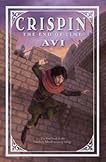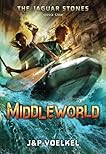a book list by Brad Bigelow, editor of The Neglected Book Page
For every new title that makes it onto Oprah's Book Club list, there are a hundred other worthy books that go unread for no other reason than that seemingly unpardonable sin of having been more than a year or two on the shelves. If a book's not in the best-seller lists, on the new releases table, or on the required reading list of some class, its chances of being read rest on word-of-mouth recommendations and the occasional serendipitous discovery of a dedicated browser.
For book clubs willing to look past the obvious and reach past the last year's worth of releases, here are eleven titles that will definitely repay their readers and generate plenty of discussion.
The Lake by George Moore
The novelist Kay Boyle once said that throughout her life, this book gave her courage as an artist. The story of a frustrated priest trapped in a little Irish town, it's also a parable about the cost of settling for less and the rewards of taking a chance. Anyone who ever thought about living their life over should read this quietly powerful novel.
The Bridge of San Luis Rey by Thornton Wilder
This book, written in the 1920s by an American, anticipates much of the "magic realism" of Gabriel Garcia Marquez and other South American writers forty years later. It's astonishing to think that a reserved Yale graduate wrote this novel when he was short of thirty, because it exhibits a wisdom about the human spirit that is sometimes jaw-dropping in its depth and insight. A bridge in colonial Peru breaks, casting a carriage full of people into a chasm. Why did it happen? What caused them all to be there? Wilder manages to turn the incident into a remarkable meditation on the meaning of life. A masterpiece.
Twilight Sleep by Edith Wharton
One of Wharton's last books, written in the late 1920s when more than a few people probably thought she was already dead. It's about New York society, as usual, but during the Jazz Age, when the Four Hundred were being cast aside by a new generation. Yet even though Wharton was 60 when she wrote this, she shows a fine currency with the ideas and ways of a much younger generation. It's a Fitzgerald novel written by someone who strolled arm-in-arm with Henry James. A rich, fascinating book.
The Emigrants by Vilhelm Moberg
This novel was made into a stunning film starring Liv Ullmann and Max van Sydow back in the 1970s. The first volume of a quadrilogy, it tells the story of a poor Swedish farm family who leaves the old country, endures constant hardship, sickness, death, and disappointments in their journey to found a new home in Minnesota. Yet as grim as that sounds, Moberg writes a narrative that's as gripping at points as the best thriller. How will the family make it? How will they make sense of the strangeness of their new land? You will definitely come away with profound respect for the toughness and endurance of our ancestors.
The Post-Office Girl by Stefan Zweig, translated by Joel Rotenberg
Zweig has enjoyed something of a renaissance in the last few years, and this recent release by New York Review Classics is one of the highlights of the spate of Zweig reissues.Christine, a poor clerk in a little Austrian post office, is suddenly pulled into the highest tier of society thanks to a long-lost cousin. The luxury and comfort are intoxicating, but just as suddenly she is tossed aside and back in the gloomy post office. Then a man of questionable motives comes along with a plan to get back in the money.
Will she go along? Will it work? Zweig's hypnotic storytelling will have you finishing this book before you even realize it.
Who Has Seen the Wind by W.O. Mitchell
This is considered one of the all-time great Canadian novels, but few Americans have ever heard of, let alone read it — which is our loss. It's the story of a young boy growing up in a small town on the prairies of Alberta, and Mitchell's gentle but profoundly beautiful prose makes his simple tale deeply moving and unforgettable. It belongs on the shelf next to To Kill a Mockingbird and William Maxwell's They Came Like Swallows. I don't know how I happened to come across this book, but it's one of the best accidents in my reading life.
The Power of the Dog by Thomas Savage, afterword by Annie Proulx
This novel about the tension between two brothers on a Montana ranch over a woman is what Steinbeck could have accomplished in East of Eden if he hadn't lost all sense of control and artistry. Savage's characters could easily rub elbows with Annie Proulx's cowboys, so it's no surprise that Proulx wrote the afterword when this book was reissued a few years ago. Critic Roger Sale once called it, "the finest single book I know about the modern West." Savage unreels the story through the eyes of at least a dozen different people, displaying a subtlety that provides an effective contrast to the rough and violent events.
The Rector of Justin by Louis Auchincloss
A one-time Pulitzer Prize winner, this is one of the best books by America's most prolific novelists of society, the acknowledge successor to Edith Wharton. This story of the headmaster of one of the East Coast's most prestigious boarding schools — modelled on Endicott Peabody, the legendary headmaster of Groton who presided over FDR's wedding — demonstrates Auchincloss's remarkable technical skills. But even better, it benefits from his perspectives as an insider, always able to see both the facade of manners and the underlying compromises, shams, and hypocrisies.
Missing Person by Grumbach Doris
This is the life of Marilyn Monroe as told by Dorothy Kilgallen — not that anyone remembers who Dorothy Kilgallen was. To me, this is hands-down best novel inspired by Monroe's life. It's also a reflection on what it meant to be a working woman in the 1950s by a writer who 'd been a working woman herself for over fifty years by the time she wrote this.
The Death of the Detective by Mark Smith
For the more ambitious book clubs. This book weighs in at over 600 pages, and those pages are packed with some of the most atmospheric and intense prose written in America in the past forty years. But there's also a cracking good story about a madman at loose, slitting throats, and a veteran detective hot on his trail. There's corruption, suggestions of incest and addiction, neon lights reflecting off rain-soaked streets, and the noise and smoke and smell of a city bursting with life and activity. There's so much going on here that other books seem like 98-pound weaklings after you finish it.
Selected Short Stories of John O'Hara by John O'Hara
Short stories are notorious as the loss leaders of the publishing business, and I doubt that one in a hundred book clubs ever pick a short story collection. But O'Hara's stories are the literary equivalent of potato chips: I defy you to stop after one. They're full of sex and booze and money and passion and play out with the speed of a bootlegger on a back road.































No comments:
Post a Comment